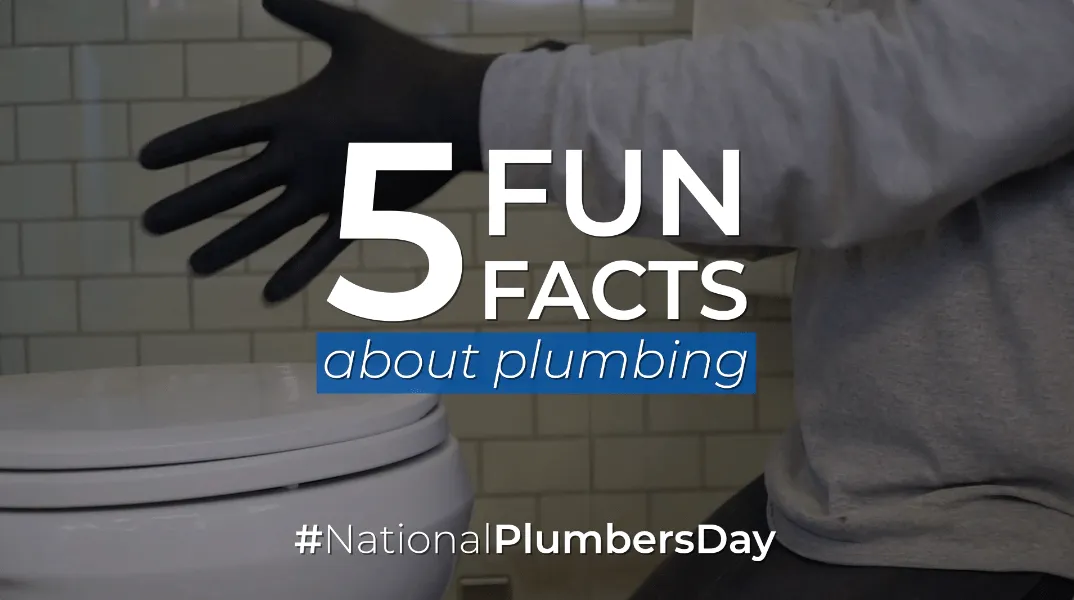Help the environment and your wallet
It is common knowledge that humans are supposed to drink a recommended 64 ounces of water per day; for some people, this is a breeze, while others may struggle even getting half of a gallon of water throughout the day. Now, imagine that gallon of water, multiplied by 88… that huge quantity of water is the amount used daily in the average American home on things like showers, laundry, and washing dishes.
Have a heating, cooling, or plumbing problem, but no time to wait for a repairman? Need a second opinion on an existing quote?
We’ll give you free advice about your question or problem. In many cases, you’ll get an estimate or the help you need during the video call.
Water conservation efforts have emerged over the years which can have positive impacts on the environment and your water bill. There is also a range of options for those that would prefer the quicker, inexpensive ways, to those that are willing to make a larger investment for bigger savings in the long run. These tips on how to conserve water also varies depending on the season. Continue reading for ideas on how to save water in the summer and winter months.
"How do I conserve water during the summer?"
Savvy savings in the backyard
- Water your plants and flowers in the morning or evening. Water evaporates quickly when the sun is higher, so sprinkling the water during the early or later parts of the day will help the water stay in the soil.
- Getting a rain barrel might sound a bit strange, but by setting up one of these, you could conserve water when watering your yard. Set the barrel underneath your gutter’s downspout to collect water after it rains, and you have a natural supply of water for your plants or garden.
- If you have invested in automated watering systems, make sure no water is being wasted on the sidewalk or driveway. Also consider converting your sprinkler system to a drip irrigation system, as the drip systems are capable of sending specified amounts of water to targeted areas.
- Cover your pool anytime it is not in use.
Be conscious in the bathroom
Although there is seemingly nothing better than a cool shower after a long, hot summer day, by trimming just two minutes off of your shower you can save around 1,750 gallons of water per person over the course of a year. Another thought is to turn the water off while you shave. While you are brushing your teeth, make sure the water is not running unless you are actually rinsing something down the drain.
Commercial Service offers 24/7 emergency services and is always happy to send over a certified technician to assess any potential problems. For non-emergency repairs, schedule an appointment with our easy Online Scheduling or by calling 812-339-9114.
"How do I conserve water during the winter?"
Insulate water pipes in unheated areas
When temperatures drop below freezing, pipes in unheated areas can freeze and cause messy, expensive damage. The most common pipe freezes occur on pipes that are exposed to frigid temperatures such as outdoor hose bibs, and water supply lines in unheated areas like basements, crawlspaces, and even kitchen cabinets. To reduce the likelihood of freezing, wrap water supply lines in unheated areas with insulation tubes made of polyethylene or fiberglass. For an extra layer of protection, apply heat-tape prior to wrapping pipes with insulation.
Drip your faucets
Contrary to popular belief, dripping faucets during freezing temperatures can actually save you money on water by acting as inexpensive insurance. A recent study conducted by Huntsville Utilities in Alabama found that a dripping cold water faucet only uses five cents worth of water in eight hours. If you know where the water comes into your building, pull water through the entire system by turning on faucets at the opposite end. By keeping the water moving, you greatly reduce the likelihood of freezing.
Know where your property shut-off valve is located
If you have a leak, knowing the location of your property shut-off valve could save you money on water and water damage repairs. The faster you can turn off the water, the less catastrophic the damage will be.
Check for leaks after the first thaw
The drastic temperature changes between night and day during the winter cause pipes to expand and contract. As a result, when the temperature goes on the rise pipes are likely to break above and below ground causing massive water loss and high utility costs. After the first thaw, have a plumber walk the property to inspect water lines and ensure no leaks have occurred over the winter.
Pro-tip: invest in green infrastructure
Green roofs, porous pavement, rain gardens, and other water-saving techniques are called green infrastructure. More cities and property owners are choosing to invest in these strategies as a way to conserve water, reduce pollution, and save millions or billions of dollars over the cost of building new tanks, tunnels, and traditional water infrastructure
For more information about how you can boost your water conservation efforts, schedule an appointment with our easy Online Scheduling or by calling 812-339-9114.




